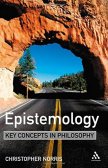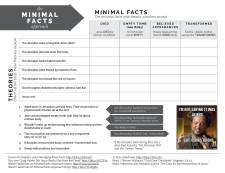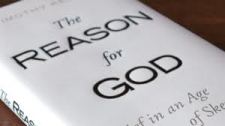This article argues we replace the word “agnosticism” (lack of knowing) with the word “apisticism” (lack of believing) on every belief scale. The current debate between Myers and Coyne on the
falsifiability of atheism is complicated by a misunderstanding of faith/belief as being necessarily blind, made worse by using the word “agnosticism” (lack of knowing) when the word “apisticism” (lack of believing or lack of faith) would be more appropriate. It is complicated as well by the misunderstanding that all knowledge below certainty implies agnosticism (and equating faith to that, rather than to belief, or equating belief to that ‘and’ faith, rather than allowing for belief/faith to count as knowledge, when both justified and true).
Knowledge is justified, true belief (this goes back to Plato’s Theaetetus). It is belief that is justified by the evidence and true by correspondence. If the belief is only true, then to call it knowledge commits the is-ought fallacy (this goes back to Hume). If the belief is only justified, then to call it knowledge commits the ought-is fallacy. [ More here. ] Genuine faith/belief is strengthened by evidence and weakened by counter-evidence, so there can be varying degrees of belief/faith/subjective certainty (hence, belief “scale”), but the ‘truth’ of the matter is very black and white (law of non-contradiction). A belief is either true or not true, regardless the amount of evidence you have in favor of it or against it, and regardless how subjectively certain you are or how strongly you believe it, which is why it is better to use “apistic/pistic” on a belief scale, rather than “agnostic/gnostic”.
When we use the word agnostic for the middle point between atheism and theism on a belief scale (like Dawkins’ belief scale), we make atheism and theism out to be gnostic positions, and some people wrongly require a gnostic position to be one of ‘certain’ knowledge, either based on evidence (including a lack of evidence, where evidence should not be lacking), or on blind faith. However 1) knowledge results when a belief (no matter how uncertain/certain) is justified by evidence (no matter how slim) and true to reality, and 2) blind faith is bad faith and can never lead to a gnostic position, not being based on any evidence/justification. Richard Dawkins rightly pointed out in “The God Delusion” that beliefs considered “religious” are, like all other claims about reality, not exempt from critical examination (falsification), and only a fideist would claim otherwise. He is wrong that the only alternative to NOMA is that evolution conflicts with any sort of design, however, where he is right implies that atheists who think atheism is not falsifiable (Myers), are ‘implicitly’ fideist.
So, before we can sell the idea that the proper (less confusing) middle way between atheism and theism is not agnosticism, but apisticism, there needs to be some course-correction which would make some atheists feel comfortable admitting they “believe” without making them feel like they are believing in the same way they feel “religious” people believe. If I were an atheist, this would likely be received better, but–what can I do? Stop being a theist? No…so we’ll go with something more rational. Reason.
Consider that epistemic belief (faith) and knowledge are not necessarily distinct–sometimes believing is also knowing–but knowing is never absolute certainty, for those lacking omniscience. A person who is very uncertain may prefer to claim to believe (have faith) rather than to claim to know. However, one doesn’t need to “know with certainty” in order to know, and a claim to believe (to have faith), is a claim to know. If you believe it (put faith in it being true), you think you know it. An exception is when you believe blindly or have blind faith. Nothing can be proved with absolute certainty (reserved for the omniscient), so all knowledge claims (beliefs) below absolute certainty require faith (lesser degrees of subjective certainty), which, unless blind, requires evidence. Biblical “believing without seeing” (the ‘virtue’ sort of faith) is not believing without evidence (a common misinterpretation)—it is believing the evidence of God’s promise before that promise is fulfilled, in the face of feared consequences like martyrdom. [ This article (expanded upon here) is on ‘atheist’ faith, and links to other faith-related articles. Atheist faith is when you hold on to the belief that there is no god(s) (as I once did), despite the fear and panic that rise up in you during your deconversion (because of what you have been taught about hell, and because of how you fear your believing friends and family will react to your deconversion). ]
Kierkegaard understood the virtue sort of faith to be central, but he was not a fideist the way most people think. He was angered by clergy who focused on evidence (knowing/believing “that” God exists) and never demonstrated saving faith (knowing God “personally” and believing “in” God). That’s why he focused so much on faith. But he wasn’t “against” evidence–he just knew nothing can be proved/known w/ certainty (and that much of Christianity feels like counter-evidence, like the God-man, which seems paradoxical), and that the ‘virtue’ sort of faith (trust “in” God) is where it is at. Scientific leaps in progress are in fact leaps of faith.
A ‘theist’ lacks the belief “No god(s) exist(s)”–they think it is wrong, because they believe (are ‘pistic’ about) the alternative they think is right: “God(s) exist(s)”. An atheist lacks the belief “God(s) exist(s)” because they think it is wrong, they believe (are ‘pistic’ about) the alternative they think is right: “No god(s) exist(s)”. An agnostic (and, again, a better term for that would be apistic) does not believe, either way…defaulting to neither theism [lacking the belief “No god(s) exist(s)”] nor atheism [lacking the belief “God(s) exist(s)”.]
As mentioned in the 115th Philosophers’ Carnival, Sam Harris writes in “The Moral Landscape” that, according to his doctoral research, belief and disbelief both “showed highly localized signal changes in the caudate” (p. 226, note 35)—it’s because disbelief is a manifestation of belief. Similarly, a doubt always implies an alternative belief. If you doubt something, it is because you believe its alternative. This is also why the skeptic’s argument from error is self-defeating (relies on a ‘realist’ premise), because you can only ever find out you were wrong about something, if you are right about the counter-evidence against it. Disbelief involves belief, and belief involves disbelief. When you say “I don’t believe this” it is because you believe something else (“I don’t believe p, I believe q”). When you say “I believe this” it is to the exclusion of other alternative beliefs (“I believe q, not p”). “I don’t believe either way” is inconclusive in a way that believing and disbelieving are not (“I don’t believe/disbelieve either p or q”). If p is atheism, and q is theism, some atheists claim that p is simply “not q” and that is as true as the claim that q is simply “not p”. That is why agnosticism defaults neither to atheism nor theism, and why ‘apisticism’ would be a more appropriate term to use, so that we don’t violate the law of non-contradiction by granting contradictory positions the “gnostic” status, based solely on the fact that they make knowledge claims.
It would be more useful to use the word “apistic” instead of agnostic, and “pistic” instead of gnostic (when comparing gnostic w/ apistic/agnostic). Consider that
1) all knowing is believing, but not all believing is knowing,
2) whereas a claim to know (to “be gnostic”) can be wrong, a claim to believe (to “be pistic”) is always right (unless of course they’re lying…some folks answered my poll by saying they strongly believe in unicorns, for example, haha!),
3) the absence of belief (apisticism) is not the same thing as the absence of knowing (agnosticism)…knowing is a special type of believing (justified, true)…though, granted, the ‘gnostic’ (as opposed to agnostic) theist/atheist is currently considered merely gnostic because they make a “claim” to know, not because they necessarily DO ‘know,’
4) belief (faith) can be blind (though it isn’t “necessarily” blind), but knowledge (conscious knowledge, anyway) cannot be blind. People can choose to believe, can “claim” to know, despite counter-evidence (have blind belief, blind faith), but people cannot “actually” know despite counter-evidence (Gettier problem examples), and
5) as stated earlier, there can be varying degrees of belief/faith/subjective certainty (hence the belief “scale”)…but the ‘truth’ of the matter is very black and white (law of non-contradiction).
It would prevent confusion if ‘gnostic’ only meant ‘know’ rather than ‘claiming to know’…which is really just believing. It would prevent confusion if a “believing” atheist/theist wasn’t called a “gnostic” atheist/theist based merely on the fact that they make a knowledge claim. Someone should only ever be called “gnostic” if they do know (if their belief is both justified by evidence, and true by correspondence), not merely because they have “knowledge claims” (which are only guaranteed to be beliefs).
Hopefully the above helps to redeem faith’s (belief ‘s) reputation and frees folks up to honestly admit belief (although, not whilst denying its falsifiability), or to honestly claim apisticism (not atheism, not theism) when they genuinely lack belief. But, preferably, in good faith, they won’t claim anything until they examine the evidence.
Great discussion of this found here on Facebook’s Philosophers + Philosophy.
***
Not counting earlier thinking on faith/belief, the following was ignited on Rational Skepticism here and Dan Fincke’s Camels with Hammers here, and combines replies from 1) a question I posted on AskPhilosophers Google group, 2) “Is atheism a belief?” on Greta Christina‘s blog, and 3) “Agnostics or Apistics?” on Dan Fincke’s Camels with Hammers.
Also see: The New, New Theism










